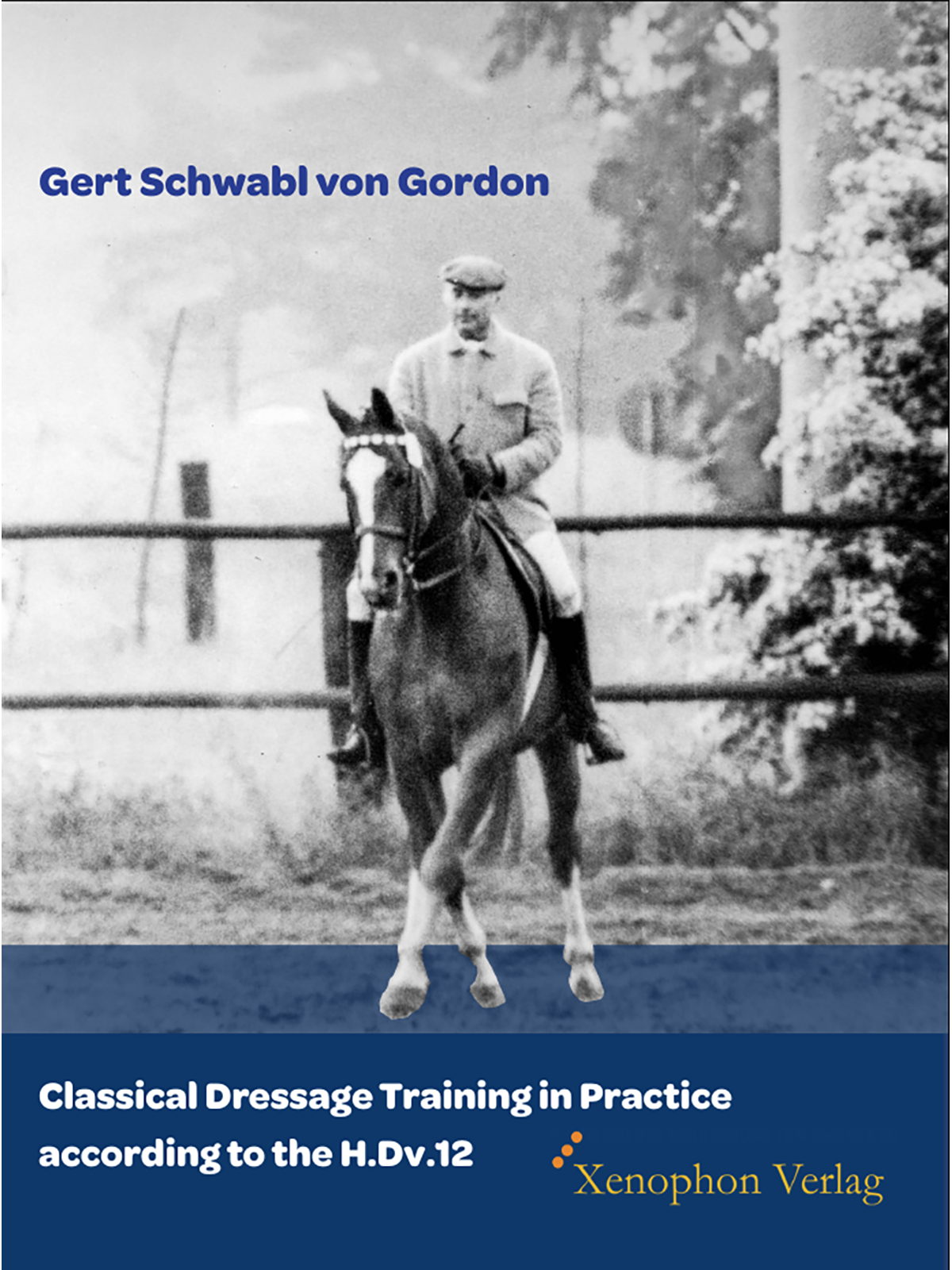Classical Dressage Training in Practice according to the H. Dv. 12
A note from the translator: Not only was it a great honor to translate this work by Gert Schwabl von Gordon, but it was also captivating to read anecdotes about Frederick the Great and the tough training he instituted for his cavalry officers after he had to call in the infantry to save the cavalry. This was the beginning of the Cavalry School of Hanover. This legacy is what you will find in these pages. It is the method necessary to train willing, reliable equine partners. My favorite example (see Section XI) took place during WWII, when Col. Podhajsky was performing with one of his Lipizzaner stallions in an outdoor arena and a helicopter slowly descended, landing next to him. Though the stallion was trembling with terror, he continued his performance. His training and rideability triumphed over his instinct to flee. I wonder how my mare would have reacted. At the center of every page in this book is respect for the horse. There are no cruel methods or shortcuts. This is classical equestrian training centered around an elegant, powerful, complex creature that must be correctly trained for the safety of horse and rider. At the time of Frederick the Great, it was imperative for each horse to react reliably and consistently on the battlefield. We are so lucky to have the means at our disposal to train our own horses to be reliable partners using the same methods. According to Mr. Schwabl, there is only one time-tested method. He reminds you throughout the book that there is one right way, and many wrong ways, to train horses. There are several examples of horses that had been ruined by poor trainers, and he teaches us how to get them back on the right track: patiently and calmly with his deep understanding of horse behavior. The methods discussed in detail in this book are invaluable for dressage training – and for the training of any horse for that matter. Whether you want to compete with your horse in the dressage ring, or even jump through the countryside on an eventing course, the no-nonsense methods you need to make him cooperative and competitive for many years are described step-by-step in this book. I am delighted to make this knowledge accessible to English speakers. Elisabeth D’Antoni

